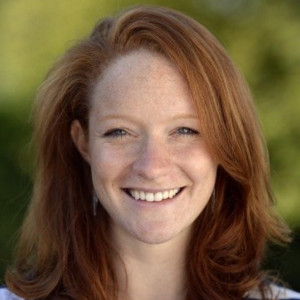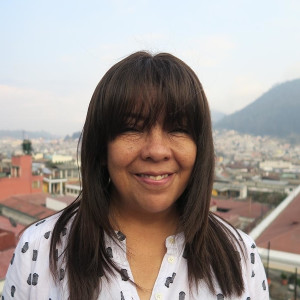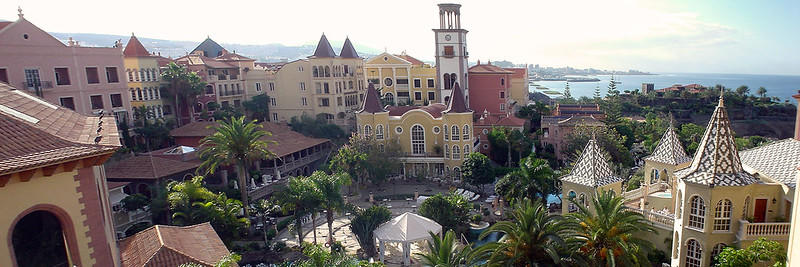Learning Spanish is a valuable skill, and for many learners in the UK, gaining a formal qualification is the next step—whether for academic achievement, career development, or personal goals. From traditional school-based exams to international language diplomas, there is a range of certificates available that assess different levels of Spanish proficiency.
These qualifications vary in terms of structure, purpose, and recognition. Some focus on academic performance within the UK education system, while others are internationally recognised and aligned with the CEFR (Common European Framework of Reference for Languages). Understanding the differences can help you choose the best option for your needs—whether you're a school pupil, a university applicant, a professional, or a casual learner looking to formalise your skills.
| Qualification | Issuer | CEFR Levels | Validity | Ideal For | |
|---|---|---|---|---|---|
| DELE (Diploma de Español como Lengua Extranjera) | Instituto Cervantes on behalf of Spanish Ministry | A1, A2, B1, B2, C1, C2 | Lifetime | Academic, professional, university entry, job applications; official international recognition; university, work visas, citizenship | |
| SIELE (Servicio Internacional de Evaluación de la Lengua Española) | Consortium of Spanish and Latin American institutions | A1 to C1 | 5 years | Faster certification process; score-based; students and professionals needing fast and flexible certification | |
| CELU (Certificado de Español: Lengua y Uso) | Argentinian universities | B2 and C1 | N/A | Study or work in Argentina or Latin America | |
| CEFR (Common European Framework of Reference) | Various institutions and testing organizations | A1, A2, B1, B2, C1, C2 | N/A | General proficiency standard across Europe and beyond | |
| ECL (European Consortium for the Certificate of Attainment in Modern Languages) | The ECL Consortium | A2, B1, B2, C1 | N/A | Practical language skills; recognized in Europe | |
| Madrid Chamber of Commerce Spanish Language Certificate | Madrid Chamber of Commerce, University of Alcalá | B2 and higher | N/A | Business contexts; working with Spanish-speaking markets | |
| TELC Español | TELC GmbH, Germany | A1 to C2 | N/A | Practical communication; accepted across Europe | |
| GCSE Spanish | UK Exam Boards (AQA, Edexcel, WJEC, CCEA) | N/A (UK Key Stage 4) | Lifetime | UK school students; academic progression to A-Level | |
| A-Level Spanish | UK Exam Boards (AQA, WJEC, CCEA) | Advanced UK Level (approx B1–B2) | Lifetime | University entrance; adds UCAS points | |
| Level 3 Certificate in Practical Spanish | Skills & Education Group (regulated by Ofqual) | N/A (vocational) | Lifetime | Vocational learners; practical language users; UCAS recognised |

Choosing The Right Spanish Language Certification
Learning Spanish can be a simple hobby in order to have a conversation with a native speaker whilst on holiday, or an obligation if you have chosen to move abroad and work in one of the 20 Spanish speaking countries around the globe.
To be able to communicate with the locals in Spain, Argentina, Mexico, or Colombia, you could take a Spanish course at a local language school, take Spanish lessons online, or even find a Spanish program at university.
If you want to show off your language level in Spanish and certify it in order to add it to your resume, several degrees and language tests are available to you!
This article is a summary of all the possible certifications in Spanish, what they imply, and their costs!
It might not be enough for a prospective employer that you speak Spanish, they might want to see a document that validates your level.
Overview of Spanish Language Certifications
| Certification | Offered by | Levels | Purpose |
|---|---|---|---|
| DELE | Instituto Cervantes | A1, A2, B1, B2, C1, C2 | Academic, professional, university entry, job applications |
| SIELE | Consortium of Spanish and Latin American institutions | A1 to C1 | Faster certification process, score-based |
| CELU | Argentinian universities | B2 and C1 | Study or work in Argentina or Latin America |
| CEFR | Various institutions and testing organizations | A1, A2, B1, B2, C1, C2 | General proficiency across Europe and beyond |
| ECL | The ECL Consortium | A2, B1, B2, C1 | Practical language skills, recognized in Europe |
| Madrid Chamber of Commerce Spanish Language Certificate | Madrid Chamber of Commerce, University of Alcalá | B2 and higher | Business contexts, working with Spanish-speaking markets |
| TELC Español | TELC GmbH, Germany | A1 to C2 | Practical communication, accepted across Europe |
The DELE (Diplomas de Español como Lengua Extranjera)
Taking a DELE test will give you a level defined by the Spanish government. The DELE (Diplomas de Español como Lengua Extranjera) is the first diploma to think about when you want to evaluate your Spanish language level, and it has six different levels:
| DELE Level | Proficiency | Description |
|---|---|---|
| A1 | Beginner | Can understand and use familiar everyday expressions and basic phrases. |
| A2 | Basic | Can communicate in simple tasks requiring direct exchange of information. |
| B1 | Intermediate | Can deal with most situations likely to arise while travelling in Spanish areas. |
| B2 | Advanced Intermediate | Can interact with fluency and spontaneity on a wide range of topics. |
| C1 | Advanced | Can express ideas fluently and understand complex texts and conversations. |
| C2 | Fluent | Can communicate with precision and nuance in any context, nearly like a native. |
Each level corresponds to those defined by the Common European Framework of Reference for Languages (CEFR).
You can learn more about Spanish lessons Edinburgh here.
- First of all, because the diploma is internationally recognised and will open up doors for you in all the countries where Spanish is spoke,
- To validate the level you've acquired for university or job requirements
- To gain confidence and make you aware of your progress
Where Can You Take a DELE Test?
There are many possibilities:
- In an Hispanic country: you could go to Latin America or Spain; the curriculum is the same worldwide.
- There are many DELE test centres across the world. Look out for your local Instituto de Cervantes
How Much Will It Cost?
The price will very much depend on the level that you want to take, and the centre that you choose. We therefore recommend you contact the centre where you would like to take the test directly.
However, to give you a rough idea of prices, you can expect to pay between £100-170 depending on your preferred level and geographical location.
If you are taking Spanish lessons London, your Superprof tutor may help you find a testing centre!

What Are The DELE Assessments Like?
It's all well and good having the logistical information about doing a proficiency test, but what does the DELE consist of? The short answer is that each level is different so it will depend entirely on which one you want to sit. A learner in all levels, however, will be assessed on five skills:
Each DELE exam works on a simple pass or fail outcome. For each level except the last one, the exam is divided into two groups for which you must obtain at least 30 points out of 50 in each group, and subsequently 60 points out of 100 in total. If you don't achieve this, you will not pass.
For the A1 to B2 level exams, both groups and tests are the same, the only difference is in how long the test lasts:
- Reading and writing skills:
- Reading comprehension:
- A1: 45 minutes, 4 test questions
- A2: 1 hour, 5 test questions
- B1: 1h10, 5 exercises
- B2: 1h10, 4 exercises
- Written interactions and expressions:
- A1: 25 minutes, 2 test questions
- A2: 50 minutes, 2 test questions
- B1: 1 hour, 2 exercises
- B2: 1h20, 2 exercises
- Reading comprehension:
- Oral skills:
- Listening exercises:
- A1: 20 minutes, 4 test questions
- A2: 35 minutes, 5 test questions
- B1: 40 minutes, 5 exercises
- B2: 40 minutes, 5 exercises
- Oral interactions and expressions:
- A1: 15 minutes
- A2: 15 minutes
- B1: 15 minutes + 15 minutes preparation
- B2: 20 minutes + 20 minutes preparation
- Listening exercises:

For the C1 level, which requires a higher level in Spanish, two categories are assessed during the exam:
- Reading and writing skills:
- Reading comprehension and language use: 1h30, 5 exercises
- Listening exercises and language use: 50 minutes, 5 exercises
- Integrated oral skills:
- Listening exercises, oral interactions and expressions: 20 minutes + 20 minutes preparation
- Reading comprehension, oral interactions and expressions: 20 minutes + 20 minutes preparation
The C2 level demands the test-taker to speak spontaneously like a Spanish bilingual. It is therefore not so much about what you have been taught during your Spanish instruction, but rather your overall grasp of the intricacies of the language. It consists of three tests:
- Language use, reading comprehension, and listening exercises: 1h45, 6 exercises
- Integrated skills:
- Listening exercises, reading comprehension, written expressions and interactions: 2h30, 3 exercises
- Comprehensive skills:
- Reading comprehension, oral interactions and expressions: 20 minutes with 30 minutes preparation
There are also two levels for the DELE for juniors. This test is reserved for young people aged from 11 to 17 years old and allows them to validate their Spanish language skills while stimulating their desire to learn. It consists of four categories:
- Reading comprehension:
- A1: 45 minutes
- A2/B1: 50 minutes
- Listening comprehension:
- A1: 20 minutes
- A2/B1: 30 minutes
- Written expressions and interactions:
- A1: 25 minutes
- A2/B1: 50 minutes
- Oral expressions and interactions:
- A1: 10 minutes + 10 minutes preparation
- A2/B1: 12 minutes + 12 minutes preparation
The advantage of the A2/B1 junior test is that, in one test, it determines the student's level. This certificate gives a lifelong validation of the candidate's level worldwide.
Remember to prepare yourself by using the annals available on the DELE website, and plunging your heart and soul into the language and culture: read newspapers, talk to Hispanics and ask them to correct you, watch films in their original version, listen to radio broadcasts, try tutoring in Spanish...
Did you know that fewer students than ever are sitting language GCSEs?
The CELU Spanish Certicate for Second-Language Spanish Speakers
The Certificate of Use of Language in Spanish (CELU) is a test which determines a person's level in the Argentinian version of the Spanish language.
It can be taken by any foreigner whose first language is not Spanish, but who wants to certify their level in order to work or study in a Spanish-speaking country.
Check out Spanish language test at University of Central FLA here on superprof.

Candidates must be at least 16 years of age in order to take the CELU. They must also be able to show a minimum of three years of high school education.
By passing the exam, candidates are showing that they possess the language abilities required to study or work in Argentina, where ever a knowledge of the Spanish language is essential.
Here's is a breakdown of the CELU exam assessment:
| Component | Description | Skills Assessed | Duration |
|---|---|---|---|
| Reading Comprehension | Reading authentic texts (articles, reports, instructions) and answering questions | Reading, understanding main ideas and details | ~60 minutes |
| Listening Comprehension | Listening to real-life dialogues, interviews, or monologues | Listening, identifying key info & inference | ~30 minutes |
| Written Production | Writing two texts (e.g. letters, reports, essays) based on prompts or input texts | Written expression, grammar, vocabulary | ~90 minutes |
| Oral Production | Speaking task with two examiners: includes presentation, roleplay, and discussion | Speaking fluency, pronunciation, interaction | ~20 minutes + prep time |
| Proficiency Levels Assessed | CELU tests Intermediate and Advanced levels only (no A1/A2 equivalent) | Global communicative competence | – |
| Recognition | Recognised in Argentina, Brazil, China, Italy and other Spanish-speaking institutions | Certification for academic or professional use | – |
SIELE Language Proficiency Test

The Servicio Internacional de Evaluación de la Lengua Española (SIELE) Spanish language proficiency test is an exam that is targeted in particular at professionals and students for use in the worlds of business and education.
It is administered by the Instituto de Cervantes, but it was developed in conjugation with the Universidad Autónoma de México, the Universidad de Salamanca, and the Universidad de Buenos Aires meaning that it has a balanced approach to the different varieties and nuances in the Spanish language across the many Spanish speaking countries.
Just like the DELE exam, it uses the CEFR to grade students between level A1 and level C1. It also tests the four main components of language learning (speaking, reading, writing, and listening) in the same way that the DELE does.
However, it differs in the sense that it is a lot more flexible, and in the sense that it is electronically based. The flexibility of taking the SIELE Spanish proficiency test comes from the fact that you can take one of five different exams:
| Module | Included Sections | Skills Assessed | Purpose |
|---|---|---|---|
| S1 | Reading Comprehension + Listening Comprehension | Understanding written and spoken Spanish | For general comprehension evaluation |
| S2 | Reading Comprehension + Written Expression & Interaction | Reading + Writing production and interaction | For written communication in academic or work settings |
| S3 | Listening Comprehension + Spoken Expression & Interaction | Listening + Speaking interaction and fluency | For evaluating oral comprehension and speaking skills |
| S4 | Spoken Expression & Interaction | Oral fluency, pronunciation, coherence in speech | For demonstrating oral production and conversational competence |
There are four main parts to the SIELE; Reading Comprehension, Listening Comprehension, Written Expression and Interaction, and Spoken Expression and Interaction. The SIELE Global contains all four parts, and therefore tests each component of language learning.
However, you can also choose to take one of the four modalities if it will better suit your needs. For example, you could decide that you only need to focus on speaking, and therefore you would only need to do S4.
This flexibility in choice is mirrored in the flexibility regarding when you can take the exam. There are no universal examination dates where the exam is sat in all parts of the world on the same day.
Instead, each of the 700 test centres around the world has slightly different dates, meaning that they are more numerous. In doing so, you may not have to wait 3 or 4 months to take the test as can be the case with some of the other Spanish language proficiency tests.
Each of the four parts of the SIELE is worth 250 points. Therefore, the SIELE Global is scored out of 1000, S1, S2, and S3 are all scored out of 500 (because they contain 2 different modalities), and S4 is scored out of 250.
Depending on how well you do, you will be placed into one of the CEFR language levels. The thresholds differ slightly depending on which one of the four parts it is, but you can find all of the grade boundaries on the SIELE website.
With it being based on the computer, there is a shorter turnaround time when waiting for the results. The Instituto de Cervantes says that you should have to wait no longer than 3 weeks from test day before you receive your score.
Superprof tutors' Spanish lessons are generally structured with an eye toward sitting such exams!
The University of Central Florida's Spanish FLPE
The Foreign Language Proficiency Exam (FLPE) evaluates skills in the areas of listening comprehension, reading comprehension, vocabulary, and grammatical accuracy. There is no credit awarded for this exam. Students can earn up to 2 semesters equivalency at a college level.
The exam lasts for 2.5 hours, and although the content is unique in each exam, you can always expect to be assessed on listening comprehension, reading comprehension, vocabulary, and grammatical accuracy of the first two semesters of any given language.

Prior to registering for an FLPE exam, you will need to make sure that it matches your needs. As a student at UCF, you can do this by speaking to your academic advisor. The UCF's website has all of the information that you will need to sign up and pay, plus information about what to do on test day, and what you will need to take with you.
Comparison of the Spanish Language Exams
- If you want to validate your Spanish language level, four diplomas are available to you. Here's a comparative overview to help you decide which option is the best:
| Feature | DELE | CELU | SIELE | UCF FLPE Spanish |
|---|---|---|---|---|
| Issuing Body | Instituto Cervantes (Spain) | Universidad de Buenos Aires (Argentina) | Instituto Cervantes & partners | University of Central Florida |
| Recognition | Worldwide, official certification | Mainly Argentina, Brazil, China, Italy | Worldwide, digital certificate | Mainly UCF & some US academic institutions |
| Levels Covered | A1 to C2 (6 levels) | Intermediate and Advanced only | Modular (S1–S4, flexible combinations) | Intermediate to Advanced levels |
| Format | Paper-based and online | Paper-based | Fully online | Computer-based, in-person |
| Skills Tested | Reading, Writing, Listening, Speaking | Reading, Writing, Listening, Speaking | Reading, Writing, Listening, Speaking | Reading, Listening, Speaking, Writing |
| Test Components | Fixed per level: reading, writing, listening, speaking | Four parts: reading, listening, writing, speaking | Modular: S1–S4 (combined skill pairs) | Integrated test assessing all skills |
| Duration | 1.5 to 4 hours depending on level | Approx. 4 hours total | Depends on modules taken (10 min–3 hrs) | Around 2.5 to 3 hours |
| Validity | Lifetime | Lifetime | 5 years | Typically lifetime (institution-specific) |
| Scoring | Pass/fail per level | Pass/fail | Scored 0–1000 scale | Scored with proficiency levels (e.g. Intermediate, Advanced) |
| Purpose | Academic, professional, immigration | Academic and professional use | Academic, professional, personal use | Academic credit, placement, professional |
| Recognition Region | Global | Mainly Latin America and some international | Global | Mainly US, academic institutions |
| Test Flexibility | Level-specific tests | Fixed format | Highly modular, mix and match components | Fixed comprehensive exam |
- We recommend that you choose a diploma which allows you to determine your level according to the CECRL, from A1 to C2, knowing that most companies deal in these levels. B2 is the most common level requested when someone is trying to work in a Hispanic country.
Now that you have all of the information necessary - launch yourself into what you think is best for you!
| Feature | DELE | CELU | SIELE | UCF FLPE Spanish |
|---|---|---|---|---|
| Issuing Body | Instituto Cervantes (Spain) | Universidad de Buenos Aires (Argentina) | Instituto Cervantes & partners | University of Central Florida |
| Recognition | Worldwide, official certification | Mainly Argentina, Brazil, China, Italy | Worldwide, digital certificate | Mainly UCF & some US academic institutions |
| Levels Covered | A1 to C2 (6 levels) | Intermediate and Advanced only | Modular (S1–S4, flexible combinations) | Intermediate to Advanced levels |
| Format | Paper-based and online | Paper-based | Fully online | Computer-based, in-person |
| Skills Tested | Reading, Writing, Listening, Speaking | Reading, Writing, Listening, Speaking | Reading, Writing, Listening, Speaking | Reading, Listening, Speaking, Writing |
| Test Components | Fixed per level: reading, writing, listening, speaking | Four parts: reading, listening, writing, speaking | Modular: S1–S4 (combined skill pairs) | Integrated test assessing all skills |
| Duration | 1.5 to 4 hours depending on level | Approx. 4 hours total | Depends on modules taken (10 min–3 hrs) | Around 2.5 to 3 hours |
| Validity | Lifetime | Lifetime | 5 years | Typically lifetime (institution-specific) |
| Scoring | Pass/fail per level | Pass/fail | Scored 0–1000 scale | Scored with proficiency levels (e.g. Intermediate, Advanced) |
| Purpose | Academic, professional, immigration | Academic and professional use | Academic, professional, personal use | Academic credit, placement, professional |
| Recognition Region | Global | Mainly Latin America and some international | Global | Mainly US, academic institutions |
| Test Flexibility | Level-specific tests | Fixed format | Highly modular, mix and match components | Fixed comprehensive exam |
Summarise with AI:

























Super useful information, thank you